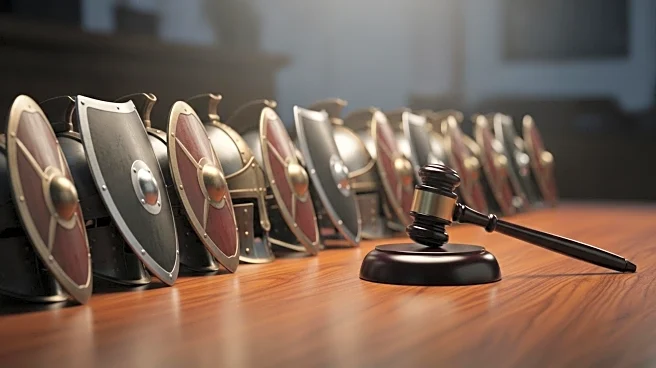What is the story about?
What's Happening?
President Trump has ordered the deployment of National Guard troops to Democratic-led cities in Texas, intensifying legal battles over his authority to do so. This move comes amidst ongoing tensions between federal and state governments regarding the use of military forces in domestic situations. The deployment is part of a broader strategy by the Trump administration to address civil unrest and maintain order in cities that have seen significant protests. The legal challenges focus on the scope of presidential powers and the rights of states to govern their own security measures without federal intervention.
Why It's Important?
The deployment of National Guard troops under presidential orders raises significant questions about federal authority and states' rights. This action could set a precedent for future federal interventions in state matters, potentially altering the balance of power between state and federal governments. The legal battles ensuing from this decision may lead to important judicial interpretations of the limits of presidential power, impacting how future administrations handle domestic security issues. Additionally, the move could influence public opinion and political dynamics, especially in states with Democratic leadership, affecting upcoming elections and policy decisions.
What's Next?
As legal challenges proceed, courts will need to address the constitutional implications of President Trump's decision to deploy the National Guard. These rulings could have lasting effects on the interpretation of federal authority in domestic affairs. Political leaders and civil rights groups are likely to continue voicing their concerns, potentially leading to legislative efforts to clarify or restrict presidential powers in similar situations. The outcome of these legal battles may also influence how future administrations approach domestic security and the use of military forces within the United States.
Beyond the Headlines
The deployment of National Guard troops touches on deeper issues of civil liberties and the role of military forces in civilian life. It raises ethical questions about the militarization of domestic security and the potential impact on community relations and trust in government institutions. Long-term, this situation could lead to shifts in public policy regarding the use of military forces in non-combat roles and the protection of civil rights during periods of unrest.
















